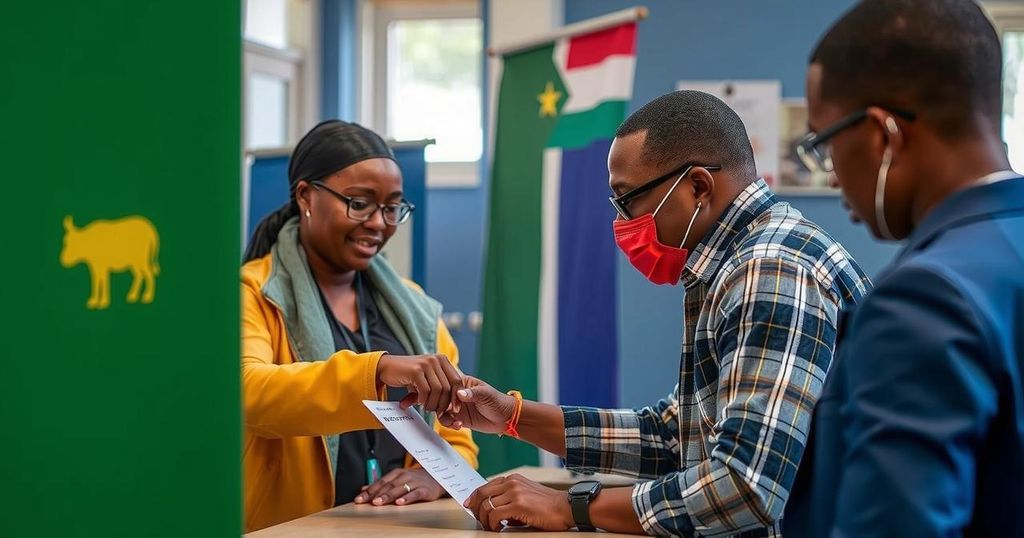World news
AFRICA, ASSOCIATED PRESS, CENTER, DEMOCRACY, ELECTORAL COMMISSION OF NAMIBIA, ELSIE NGHIKEMBUA, FRELIMO, GOVERNANCE, GOVERNMENT, MOZAMBIQUE, NAMIBIA, NANGOMBE SHITALENI, NET, NETUMBO NANDI - NDAITWAH, NORTH AMERICA, OKANDJENGEDI, OPPOSITION, POLITICS, SWAP, SWAPO, UNITED STATES, WINDHOEK
Sofia Rodriguez
0 Comments
Namibia Extends Election Voting Amid Logistical Challenges and Opposition Complaints
Namibia’s electoral agency has extended the voting period for president and parliament until Saturday due to ballot paper shortages, provoking complaints from the opposition regarding legality and potential fraud. Long queues and logistical issues have left many citizens without the opportunity to vote, coinciding with widespread public frustration over economic challenges and high unemployment, especially among the youth.
Namibia’s electoral agency has announced an extension of its presidential and parliamentary voting period until Saturday due to technical difficulties and a shortage of ballot papers. This decision was met with allegations of fraud from the primary opposition party, Independent Patriots for Change. The elections management body reported that several polling stations experienced delays in ballot paper deliveries, leaving many voters unable to cast their votes. Amid reports of long queues and logistical challenges, the chairperson of the Electoral Commission, Elsie Nghikembua, acknowledged the situation while promising solutions. As the country faces growing public discontent over economic issues, the ruling SWAPO party, led by vice president Netumbo Nandi-Ndaitwah, strives to maintain its dominance in the political arena, while frustrations continue to mount among its youthful population.
The article discusses Namibia’s decision to extend voting days due to critical shortages of ballot papers, highlighting potential implications for the electoral process and public sentiment. The extension has prompted opposition challenges, citing illegal electoral practices. The broader context includes the political landscape in Namibia, where the ruling SWAPO party has held power since independence and faces increasing dissatisfaction from a populace grappling with high unemployment and inequality despite being classified as an upper middle income nation. This political climate mirrors regional trends where long-standing parties are facing significant challenges from younger voters seeking change.
In summary, Namibia’s decision to extend the voting period amidst logistical challenges underscores the fragility of its electoral system and the prevailing tensions between the ruling party and opposition factions. Public protest over access to voting raises critical questions regarding the management of democracy in Namibia, particularly given the backdrop of economic inequality and youth discontent. The upcoming election results will be pivotal not only for the future of the SWAPO party but also for the broader democratic landscape in the region.
Original Source: abcnews.go.com




Post Comment